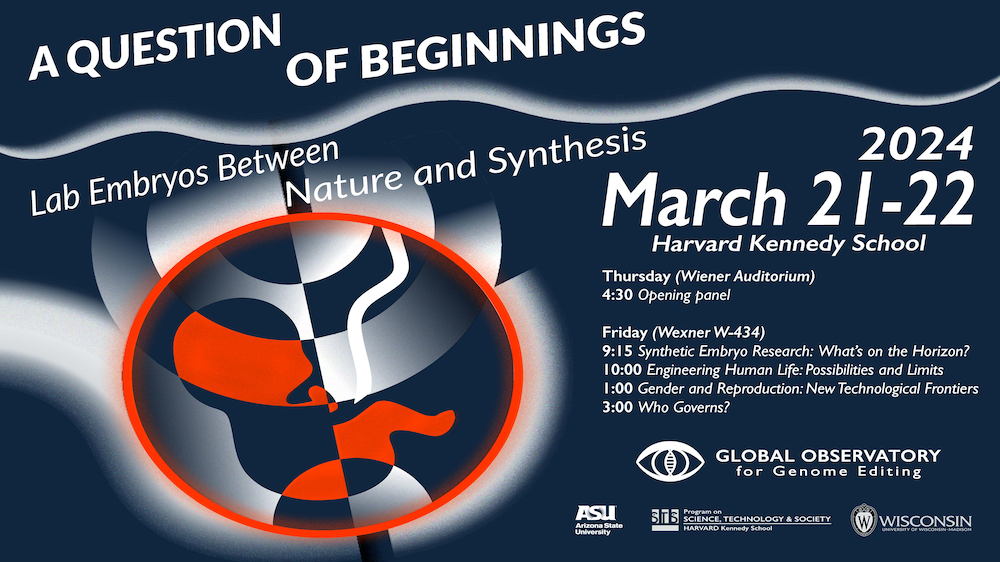For more than 50 years, human ingenuity has created increasing distance between natural and technologically mediated human reproduction. As a result, the embryo, a site and object of technological innovation, has acquired a life of its own, outside the maternal body, capable of developing to some degree in laboratory or industrial settings. Concurrently, biologists and biotechnologists have synthesized embryo-like entities to probe human development and disease and constitute a wellspring of diagnostic and therapeutic products. What do these projects mean for human reproduction and corollary meanings of human integrity, rights, health and disease, and the nature of human relations– familial, legal, and social? The Global Observatory for Genome Editing explores these questions with a lecture and panels featuring conversations between leading scientists, ethicists, legal and policy scholars, religious thinkers and women’s rights advocates.
Program on Science, Technology and Society at HarvardHarvard Kennedy School of Government | Harvard University |
|||||||
|
|
A Question of Beginnings: Lab Embryos Between Nature and SynthesisMarch 21-22, 2024, Abstract |
||||||
